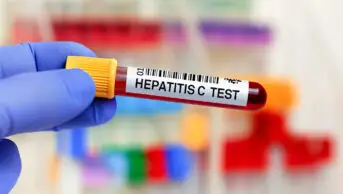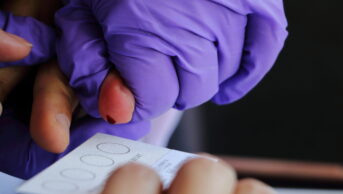
Science Photo Library
An intervention designed to help GPs to identify and refer patients for hepatitis C (HCV) testing and treatment is both effective and cost-effective, research published in the BMJ (26 February 2020) has found[1]
.
Researchers compared the intervention with usual care across 45 general practices in south west England.
The intervention involved an electronic algorithm designed to flag patients with HCV risk markers. The tool also enabled practices to invite flagged patients for a test. Staff at practices in the intervention group received HCV training, and posters and patient leaflets were placed in waiting rooms.
Around 5% (24,473) of all patients were flagged as having HCV risk markers; 16% of the flagged patients in intervention practices were tested for HCV compared with 10% in control practices (adjusted rate ratio 1.59, 95% confidence interval 1.21–2.08).
The researchers calculated that there was one extra HCV diagnosis, referral and assessment per 792 patients flagged. On average, the intervention cost £3,165 per additional patient assessed at hepatology, with a cost per quality-adjusted life-year gained of £6,212.
Matt Hickman, public health epidemiologist at the University of Bristol and one of the authors of the study, said: “Scaling up HCV treatment and case-finding in primary care and other sites is critical to achieving ambitious targets to eliminate HCV as a public health problem.”
References
[1] Roberts K, Macleod J, Metcalfe C et al. BMJ. 2020;368:m322. doi: 10.1136/bmj.m322
You may also be interested in

Genomics surveillance programme for hepatitis C launched by UK Health Security Agency

How we treated more than 100 hepatitis C patients at pharmacist-led clinics in North Wales
